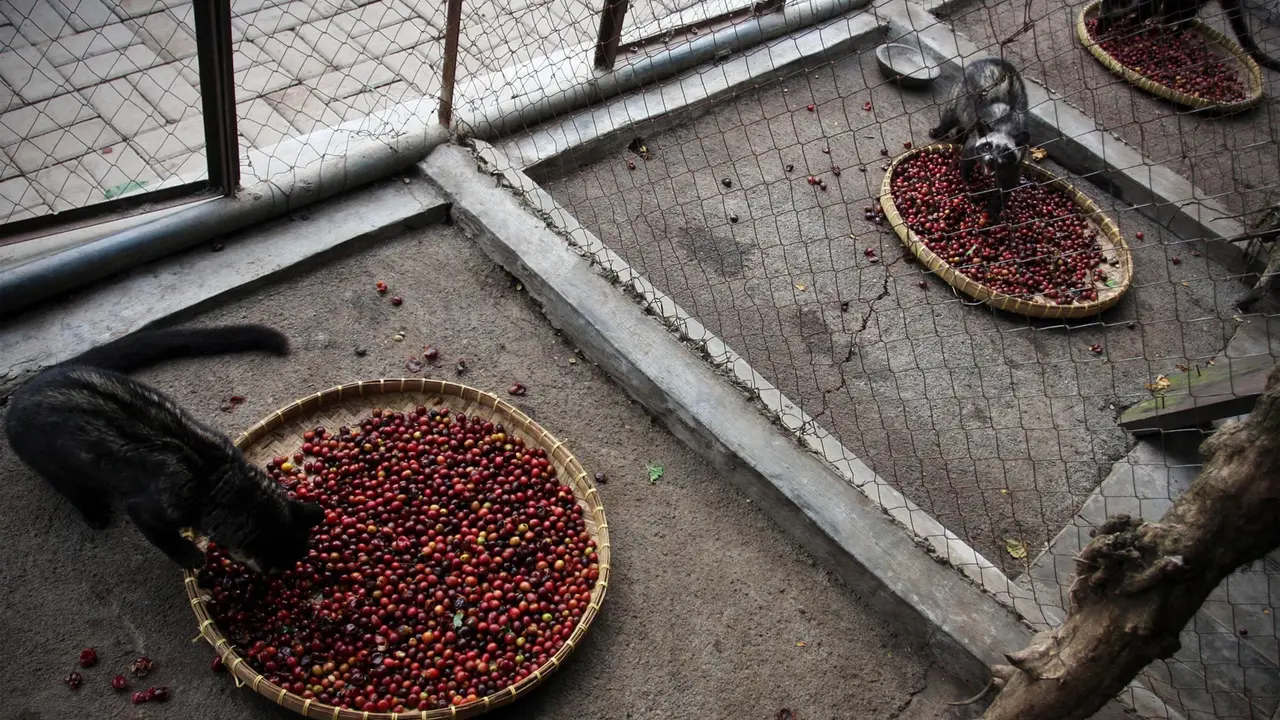Updated 1 October 2024 at 19:53 IST
International Coffee Day 2024: Discover the World’s Most Expensive Coffee from Civet Cat Poop
Civet coffee is made from the droppings of the Asian palm civet, a nocturnal mammal that consumes coffee cherries and excretes partially digested beans.
- Utility News
- 2 min read

As we celebrate International Coffee Day on 1st October, there’s a fascinating and unique type of coffee that every coffee lover should know about, Civet Coffee, also known as Kopi Luwak, or more interestingly "cat poop coffee."
India’s Role in Producing the World’s Most Expensive Coffee
India, Asia's third-largest producer of coffee, plays a significant role in producing the world’s most expensive and unconventional coffee. Civet coffee is made from the droppings of the Asian palm civet, a nocturnal mammal that consumes coffee cherries and excretes partially digested beans. This natural process is said to enhance the flavor of the beans, which are collected, processed, and roasted to create the highly prized coffee.
Civet coffee has gained a high price due to the labor-intensive process of collecting the droppings, the wastage during production, and the strict quality controls.
Internationally, it is sold for as much as Rs 20,000-25,000 per kilogram, especially in Gulf and European markets.

The Origins of Kopi Luwak
Kopi Luwak has its roots in Indonesia, where Dutch colonialists established coffee plantations in the 19th century. Farmers in Java discovered that beans excreted by civets could be brewed into a unique and flavorful coffee. The ability of the civet to select the best berries, combined with factors such as roasting and brewing methods, results in a distinctive taste that varies depending on the region and the beans used.
Advertisement
The Ethical Concerns Surrounding Civet Coffee
In recent years, the rising demand for civet coffee has led to the establishment of intensive civet farms in Southeast Asia. Unfortunately, these farms often confine the animals to battery cages and force-feed them coffee cherries. Conservationists have raised concerns about the treatment of civets, noting the poor living conditions, high mortality rates, and potential risks to wild populations.
Experts like Chris Shepherd, deputy regional director of TRAFFIC in Southeast Asia, have spoken out against these practices, drawing parallels between the conditions on civet farms and those of battery chickens. There are growing calls for responsible sourcing and better regulations to protect the civets and maintain ethical standards in the production of this rare coffee.
Advertisement
While Kopi Luwak remains a luxurious and sought-after product, consumers need to be aware of the ethical implications behind its production. As we savor our coffee on International Coffee Day, it’s worth considering the journey these beans take and the lives they impact before they reach our cups.
Published By : Srujani Mohinta
Published On: 1 October 2024 at 12:58 IST
